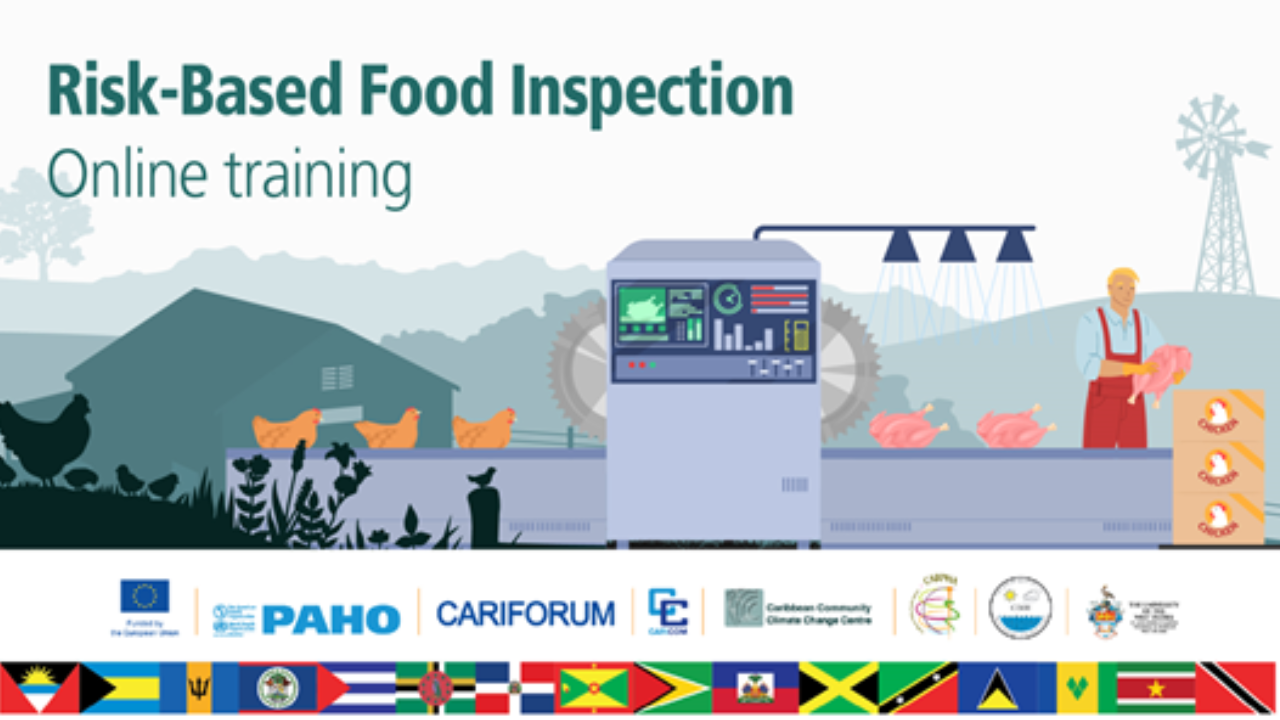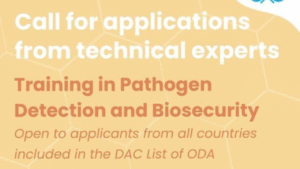Microbiological and chemical contamination continues to be the primary cause of foodborne diseases (FBDs) worldwide. The World Health Organization (WHO) estimates that approximately 1.8 million individuals die annually from diarrheal diseases, with around 70% of these instances linked to the consumption of unsafe food. Competent authorities are crucial in protecting public health by ensuring that food businesses adhere to both national and international food safety laws and regulations. Their supervision is vital to ensure the safety of food throughout the entire value chain, from production and processing to distribution and retail.
A significant strategy for achieving this goal is the creation and execution of risk-based food inspection plans, which focus inspection efforts and distribute resources according to the risk levels associated with particular foods and processes. This preventive, science-driven approach is especially effective in addressing emerging food safety threats.
In the present scenario, emerging hazards—intensified by factors such as climate change—represent a growing risk to food safety and public health. Increasing temperatures, heightened humidity, and shifting weather patterns foster conditions that promote the growth and dissemination of foodborne and waterborne pathogens. These climate-related threats must be systematically incorporated into national food control systems, which include regulatory frameworks, surveillance, monitoring, risk assessments, and risk-based inspection plans.
This online training program aims to strengthen the capabilities of food safety authorities in developing and implementing effective risk-based inspection plans, while highlighting the significance of considering climate change factors within national food control systems. By incorporating food safety hazards that are particularly sensitive to climate change into inspection strategies, nations can more effectively adapt their food safety systems to changing environmental challenges, thereby reducing risks and ensuring a safe, dependable food supply for the future.
The training is organized into four modules:
(1) principles and guidelines of a national food control system;
(2) climate change and emerging risks to food safety;
(3) development of risk-based food inspection plans;
(4) best practices in food inspection within poultry production. There is an evaluation at the end that is designed to assess the knowledge acquired during the course regarding the integration of climate change risks derived into a food control system and risk-based food inspection.
Course description and target audience
The course offers a collection of rich-media, interactive modules that are provided through an online, asynchronous learning platform, enabling participants to advance at their own pace. Each module integrates various instructional techniques, including video lectures led by experts, self-assessment exercises, practical case studies, brief quizzes, and a thorough final examination to reinforce learning outcomes.
Participants will also have access to additional resources such as explanatory notes, technical guidelines, and practical manuals, which are designed to enhance understanding and aid in the application of knowledge within real-world food control systems.
This training is specifically designed for risk managers, food inspectors, and other professionals engaged in national food control systems who seek to improve their expertise in the design, implementation, and management of risk-based food inspection frameworks. By completing this course, participants will acquire valuable insights into the incorporation of emerging risks—such as those related to climate change—into national food control strategies, thereby contributing to safer and more resilient food systems.
Objectives of the course
The primary goals of the course are:
- Improve participants’ comprehension of the essential criteria for creating and managing a national food control system, in accordance with Codex Alimentarius standards. Examine the effects of climate change on food contamination and offer strategies for incorporating climate-related factors into national food control systems.
- Demonstrate the advantages of risk-based food inspection and provide participants with practical tools and methodologies for formulating and executing risk-based inspection plans.
- Encourage best practices in risk-based food inspection, particularly concerning poultry production, to guarantee food safety throughout the supply chain
Competencies
Upon completion of the course, participants will be able to:
- Comprehend the principles and guidelines governing national food control systems, in alignment with Codex Alimentarius standards, which encompass legal frameworks, the responsibilities of competent authorities, and the implementation of risk-based methodologies.
- Evaluate the impact of climate change on food safety, pinpointing significant microbiological and chemical hazards intensified by climate-related factors and suggesting adaptation strategies for food control systems.
- Devise and execute risk-based food inspection plans, utilizing tools and methodologies to classify food establishments according to risk levels and to enhance resource allocation.
- Implement sound sanitary inspection practices in poultry production, identifying critical control points and the requisite actions to guarantee food safety throughout the production process.
- Incorporate a preventive and evidence-based strategy into national food surveillance and inspection systems, with a specific focus on emerging risks and climate variables.
- Employ technical resources and self-assessment tools to bolster risk management in official food control, thereby improving the resilience of the system against current and future threats.
Course Structure:
Module 1: Fundamental Principles and Guidelines for National Food Control Systems (Estimated Duration: 45 min.)
Module 2: Climate Change and Emerging Risks to Food Safety (Estimated Duration: 45 min.)
Module 3: Formulation of Risk-Based Food Inspection Plans (45 min.)
Module 4: Best Practices in Food Inspection (45 min.)
Evaluation and Certification
Each module comprises quiz exercises designed to assist participants in evaluating their comprehension of the content. After completing all four modules and their respective quizzes, participants are required to pass a Final Exam aimed at assessing the knowledge gained throughout the course. Participants will be allowed multiple attempts to reach the necessary score of 70% or above.











43 Responses
Ready to access more information involving risk based inspection approach throughout the supply chain
Best wishes to you. Happy learning. Keep touch with Biology School to know Training, workshop opportunities and learn Biology. Be a regular member of Biology School. Register through https://biologyschool.org/register/
I would like to enroll
Best wishes to you. Happy learning. Keep touch with Biology School to know Training, workshop opportunities and learn Biology. Be a regular member of Biology School. Register through https://biologyschool.org/register/
I would like to enrol
Best wishes to you. Happy learning. Keep touch with Biology School to know Training, workshop opportunities and learn Biology. Be a regular member of Biology School. Register through https://biologyschool.org/register
A very good course
Best wishes to you. Happy learning. Keep touch with Biology School to know Training, workshop opportunities and learn Biology. Be a regular member of Biology School. Register through https://biologyschool.org/register
Very useful course to enroll as the food contamination remain the big challenge in Africa due to climate challenges.
I like it and am willing to do the course.
Best wishes to you. Happy learning. Keep touch with Biology School to know Training, workshop opportunities and learn Biology. Be a regular member of Biology School. Register through https://biologyschool.org/register
A very important course for those working in food safety and control
Best wishes to you. Happy learning. Keep touch with Biology School to know Training, workshop opportunities and learn Biology. Be a regular member of Biology School. Register through https://biologyschool.org/register
Yes I am very ready to access the information as it will accelerate my skills in food inspection
Best wishes to you. Happy learning. Keep touch with Biology School to know Training, workshop opportunities and learn Biology. Be a regular member of Biology School. Register through https://biologyschool.org/register
I was attending previous course on Introduction on Food Safety and Risk Assessment in COHESA and been certified.
This is why I am interested in that course of Risk Based food Inspection as a continuation of FSRA
A vital course to equiping food specialists and those desiring to venture into this field.
Best wishes to you. Happy learning. Keep touch with Biology School to know Training, workshop opportunities and learn Biology. Be a regular member of Biology School. Register through https://biologyschool.org/register
I’d like to enroll
Best wishes to you. Happy learning. Keep touch with Biology School to know Training, workshop opportunities and learn Biology. Be a regular member of Biology School. Register through https://biologyschool.org/register
I would like to enrol
I would like to enrol
Best wishes to you. Happy learning. Keep touch with Biology School to know Training, workshop opportunities and learn Biology. Be a regular member of Biology School. Register through https://biologyschool.org/register
Thank you very much for sharing this important training. I am very interested to enroll and attend the course, because, this risk-based food inspection course is basic for veterinary public professionals to have safe and hygienic food of animal origin.
Thanks in advance for sharing!
You are welcome. Best wishes to you. Happy learning. Keep touch with Biology School to know Training, workshop opportunities and learn Biology. Be a regular member of Biology School. Register through https://biologyschool.org/register
Interested to enrol
Best wishes to you. Happy learning. Keep touch with Biology School to know Training, workshop opportunities and learn Biology. Be a regular member of Biology School. Register through https://biologyschool.org/register
Resdy to more about food safety
Best wishes to you. Happy learning. Keep touch with Biology School to know Training, workshop opportunities and learn Biology. Be a regular member of Biology School. Register through https://biologyschool.org/register
This is a good course for empowering us on the line of food safety and food borne illnesses.
You are right. Best wishes to you. Happy learning. Keep touch with Biology School to know Training, workshop opportunities and learn Biology. Be a regular member of Biology School. Register through https://biologyschool.org/register
I’m interesting
Welcome. Best wishes to you. Happy learning. Keep touch with Biology School to know Training, workshop opportunities and learn Biology. Be a regular member of Biology School. Register through https://biologyschool.org/register
I’m literally interested, and I want to enroll ,im a food scientist but I’ve ever wanted to have a whole knowledge when it’s comes to food safety.
Best wishes to you. Happy learning. Keep touch with Biology School to know Training, workshop opportunities and learn Biology. Be a regular member of Biology School. Register through https://biologyschool.org/register
Am ready to enroll the course …
Best wishes to you. Happy learning. Keep touch with Biology School to know Training, workshop opportunities and learn Biology. Be a regular member of Biology School. Register through https://biologyschool.org/register
Am will to take
Best wishes to you. Happy learning. Keep touch with Biology School to know Training, workshop opportunities and learn Biology. Be a regular member of Biology School. Register through https://biologyschool.org/register
I will be interested in taking this food safety course.
Best wishes to you. Happy learning. Keep touch with Biology School to know Training, workshop opportunities and learn Biology. Be a regular member of Biology School. Register through https://biologyschool.org/register
I am interested in taking this online course on food safety.
Best wishes to you. Happy learning. Keep touch with Biology School to know Training, workshop opportunities and learn Biology. Be a regular member of Biology School. Register through https://biologyschool.org/register
I need to enroll